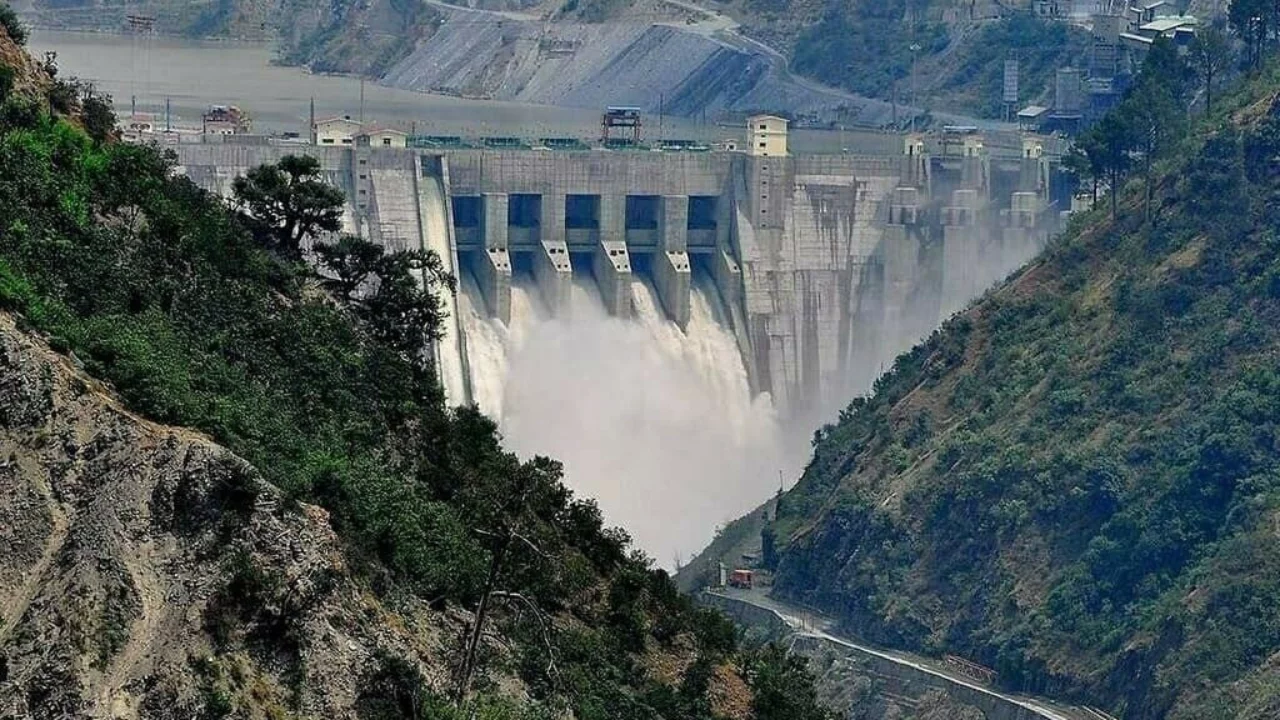Pakistan's Contradictory Claims on Indus Waters Treaty

Pakistan's recent letter to India seeking reconsideration of the Indus Waters Treaty suspension explains Pakistan’s struggle with the consequences of its own actions. The letter declares India's decision to keep the treaty in abeyance as "unilateral and illegal," yet conveniently ignores the decades of cross-border terrorism that prompted this response. Pakistan's demands for water rights while simultaneously harboring and supporting terrorist groups exposes a fundamental contradiction that undermines its moral authority. India suspended the Indus Waters Treaty in April 2025 following the Pahalgam terror attack that killed 26 civilians. Pakistan cannot expect to enjoy the benefits of international cooperation while sponsoring violence against Indian citizens. India's position that the treaty will remain suspended until Pakistan "credibly and irrevocably" abjures support for cross-border terrorism is both justified and necessary.
There appears an irony in Pakistan's response to this decision. Bilawal Bhutto Zardari, the Pakistan People's Party chief, recently warned that blocking Pakistan's water supply would be seen as an "existential threat," leaving Pakistan with "no option but war." This statement encapsulates the twisted logic that has defined Pakistan's approach to India for decades. A nation that has inflicted three wars and thousands of terror attacks on India now threatens war when facing consequences for its actions. Pakistan's leaders seem incapable of grasping the basic principle that rights come with responsibilities. The Indus Waters Treaty, signed in 1960, was concluded "in a spirit of goodwill and friendship." Pakistan violated this spirit from the very beginning. Over the past 65 years, Pakistan has waged three wars against India while simultaneously demanding that India honor its water-sharing commitments. More than 20,000 Indian lives have been lost to Pakistan-sponsored terrorism, including the recent targeted attack on tourists in Pahalgam.
The treaty itself reflects Pakistan's advantageous position. Despite controlling only 47 percent of the Indus basin, Pakistan secured rights to 80 percent of the water. India, with 39 percent of the basin, received merely 20 percent of the water. This arrangement was accepted by India in good faith, with the expectation that Pakistan would reciprocate with peaceful relations. Instead, Pakistan used its strategic position to launch repeated attacks while expecting India to continue providing water. Pakistan's obstructionist behavior regarding the treaty has been consistent. It has objected to virtually every Indian project in Jammu and Kashmir, forcing India for dispute resolution mechanisms. The Salal Dam's efficiency was compromised due to Pakistani objections, and the Tulbul Navigation Project was put on hold. Even when neutral experts and arbitration courts upheld Indian projects like Baglihar and Kishanganga, Pakistan continued its objections.
The security situation created by Pakistani terrorism has delayed numerous Indian projects. India has developed barely one-sixth of the estimated 30,000 MW hydroelectric capacity of the rivers due to these challenges. In a particularly cynical act, terrorists attacked the Tulbul Navigation Project in 2012, demonstrating how Pakistan uses violence to sabotage infrastructure development. Pakistan's current water crisis stems from its own failures rather than Indian actions. The latest reports show water flow to Pakistan's Sindh province dropped by 17 percent, affecting crop sowing. However, this reduction reflects India's limited ability to manipulate river flows rather than any deliberate attempt to cause harm. The Indus rivers carry enormous volumes, particularly during monsoon season, and India's existing infrastructure cannot significantly alter these flows without flooding its own territories.
The fundamental issue remains Pakistan's refusal to choose between terrorism and cooperation. Pakistani leaders like Bilawal Bhutto Zardari speak of comprehensive dialogue while their country continues to provide sanctuary to terrorist groups. They demand water rights while refusing to acknowledge that their support for terrorism created this situation. India's position that "blood and water cannot flow together" represents a mature response to decades of Pakistani duplicity. Previous attempts to link progress on terrorism with other bilateral issues failed because Pakistan made insincere promises and then reneged. The suspension of the Indus Waters Treaty finally creates meaningful consequences for Pakistan's behavior.
The treaty's provisions show how international law can be manipulated by bad actors. Pakistan secured inspection rights to ensure Indian compliance while providing no reciprocal guarantees about ending terrorism. The treaty lacks an exit clause or expiry date, making it difficult to modify even when circumstances change fundamentally. The Vienna Convention on the Law of Treaties recognizes that fundamental changes in circumstances can justify treaty termination, and Pakistan's sustained support for terrorism certainly qualifies. Pakistan's current predicament illustrates the cost of choosing terrorism over cooperation. The country faces water stress, energy shortages, and agricultural challenges partly because its own policies have undermined regional stability. Rather than acknowledging these realities, Pakistani leaders continue making threats and demands.
The international community should recognize that India's suspension of the Indus Waters Treaty represents a legitimate response to Pakistani aggression. No country should be expected to provide benefits to a neighbor that actively sponsors violence against its citizens. Pakistan's claims about water rights ring hollow when considered alongside its record of terrorism and war. Pakistan has the choice to end support for terrorism and return to the path of cooperation, or face the consequences of its actions. Until Pakistan makes this fundamental decision, India's position that the treaty remains in abeyance is both justified and necessary. Read “Zamin” on Telegram!
Ctrl
Enter
Found a mistake?
Select the phrase and press Ctrl+Enter 





















